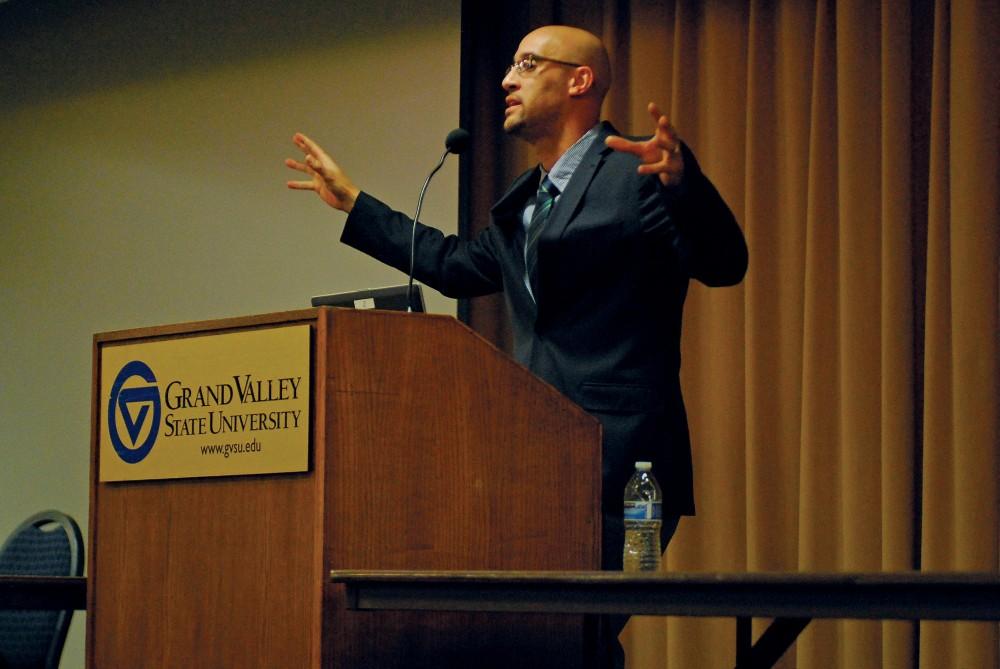GVSU professor shares own encounters with racial profiling

GVL / Hannah Mico Louis Moore, assistant professor of history, spoke of racial segregation and inequality in today’s society, emphasizing this practice in politics and the justice system.
Jan 27, 2014
Grand Valley State University history professor Louis Moore spoke Thursday to students and community members about the historical reasons behind racial profiling.
“The way we overcome (racism) is challenging that it does exist,” Moore said. “Education is the key to society.”
The Office of Multicultural Affairs sponsored the presentation, which was called “The Continuing Trial of Trayvon Martin: Profiling and Privilege,” as part of the Martin Luther King, Jr. Commemoration Week.
Moore said the country needs to change the stereotypical way that African Americans are viewed.
“Incidents like the Trayvon Martin case happen all the time,” he said. “There is no excuse for seeing a boy as a criminal and murdering him for it just because he was black.”
Moore grew up in the diverse city of Los Angeles. He said police would follow him around and people would watch him when he entered a store. Moore was the first in his family to go to an integrated school.
About six years ago, he moved to Grand Rapids, where he lives in an all-white neighborhood. He has had police show up at his front door because a neighbor called them.
“I was blinded by the notion that I’m a professor here and race isn’t going to touch me,” he said.
Moore said King’s idea of content over character is powerful because they both matter.
“It’s not about a color-blind society but a color conscious society,” he said. “Racism isn’t over, but we need to take the radical position of breaking down privilege.”
In today’s modern culture, Moore attributed racial profiling to the media. In Hollywood films, such as “Birth of a Nation,” and rap music, blacks are portrayed in a stereotypical way. He said it goes back to the historical depiction of blacks as criminals, but it does not have to be this way.
Moore said racial profiling began with slavery out of the “fear of black bodies,” which was due to the hyper-surveillance of blacks and the feeling that they did not belong in mainstream society. There was nothing to challenge this notion.
In the late 1800s, many African Americans were arrested and sent to prison. They were wrongly treated as criminals, Moore said. He added that by 1890, 30 percent of the prison population were African-Americans, but they only made up 10 percent of the U.S. population as a whole.
In this way, mass incarceration became the new Jim Crow laws as many experienced the school-to-prison pipeline. Moore said they went from segregated schools to segregated prisons.
He also touched on the Civil Rights Movement of the 1960s, particularly King’s idea of “white racism.” In his last book, King acknowledges the deep roots that racism and slavery have in American history and how hard it can be to overcome. Moore said the truth in King’s words is still seen today.

























